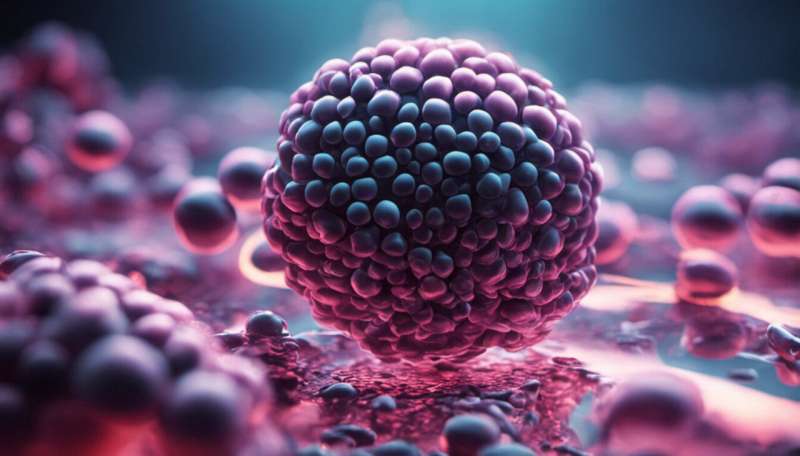Drug preserves beta cells in new cases of type 1 diabetes

(Medical Xpress)—A drug in clinical trials has been shown to preserve insulin-producing pancreatic beta cells in nearly half of subjects newly diagnosed with type 1 diabetes. Results of the phase 2 trials are published in the journal Diabetes.
In type 1 diabetes, a malfunction in the immune system's inflammatory response kills off the beta cells that produce insulin in the pancreas. Trials of therapies to moderate this autoimmune destruction in new-onset type 1 diabetes (T1D) have shown success, but not everyone responds, and the response duration has been limited. The reasons why some patients respond better than others, and why earlier immune therapies have not induced lasting remissions of the disease, have not been known.
Previous studies have shown that a single course of the anti-CD3 monoclonal antibody drug Teplizumab, given soon after diagnosis, improved beta cell responses for a year, but the responses waned after that. In these new trials, the team sought to determine whether two courses of the drug, one year apart, would have a better response. The team also hoped to identify the characteristics of patients who responded best. Teplizumab was originally produced by Dr. Jeffrey Bluestone of the University of California-San Francisco.
In these randomized, controlled trials, the team treated 52 patients with teplizumab for two weeks after diagnosis, and again after one year.
The results were impressive, report the researchers. Teplizumab treatment significantly reduced the loss of beta cells after two years; in fact, the level at year two was, on average, 75% higher in the teplizumab arm of the trial than in the control group.
"There's a sub-group of people, 45%, that had a terrific response to the drug. In these patients, there was a three-fold improvement in their insulin responses compared to untreated participants," said lead investigator Kevan Herold, professor of immunobiology at Yale School of Medicine, director of the Yale Autoimmunity Center of Excellence (one of just nine centers of its kind in the country), and deputy director for translational science at the Yale Center for Clinical Investigation. "After two years, they'd lost less than 10 percent of their beta cell responses."
Herold and team also studied who responded best among the group of patients. "Responders tended to be those who needed less insulin when they first got into trial, and had better control of their blood sugar levels," he said.
Herold and his colleagues are hoping to soon start a phase 3 trial that could lead to FDA approval of the drug, but not just for newly diagnosed T1D patients. Herold is also principal investigator of a diabetes prevention trial at Yale, to determine whether the same drug can stop the disease in people are at high risk of developing type 1 diabetes.
"If approved," he said, "this would be the first drug to change the natural course of type 1 diabetes since insulin."
More information: diabetes.diabetesjournals.org/ … 3-0345.full.pdf+html




















